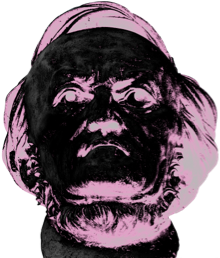Nietzsche
Nietzsche and Wagner had one of the most consequential intellectual relationships of the 19th century. From fanatical obsession and praise in The Birth of Tragedy in 1872, to polemical repudiation in The Case of Wagner in 1888, Wagner was the hero and villain of all of Nietzsche’s works. Nietzsche’s break with Wagner marked the beginning of Nietzsche’s mature thought, which was nearly as consequential for Germany as was Wagner’s.
“In the end, both men harbored impulses that look ominous from the vantage point of the post-Holocaust era. What Wagner dislike in Nietzsche— the pitilessness, the exaltation of power—and what Nietzsche disliked in Wagner—the Teutonic chauvinism, the antisemitism—added up to an approximation of the fascist mentality. Once the better angels of their natures are set aside, Wagner and Nietzsche darkly complete each other in the Nazi mind.” - Alex Ross
Nietzsche and Wagner
-

VIDEO: Nietzsche and Wagner, Part the First
The basics Nietzsche and Wagner’s Padawan and Jedi dynamic.
-

ESSAY: The Apollonian and Dionysian
The Apollonian and Dionysian distinction was an idea important to both Nietzsche and Wagner, and the central idea of Nietzsche’s first major publication, The Birth of Tragedy (1872). Daniel Orsen explains what Nietzsche meant by Apollonian and Dionysian, the long philosophical history of this idea, and Nietzsche and Wagner’s divergence on the subject.
-

MUSIC: Es Winkt
A beautiful and touching lied BY Friedrich Nietzsche that reveals the tender and vulnerable side of Mr. Will-to-Power.
Nietzsche was a modestly gifted composer who hit it out of the park a few times. He had adequate compositional technique and wrote simply and sincerely. Sometimes that is all one needs to make something beautiful.
